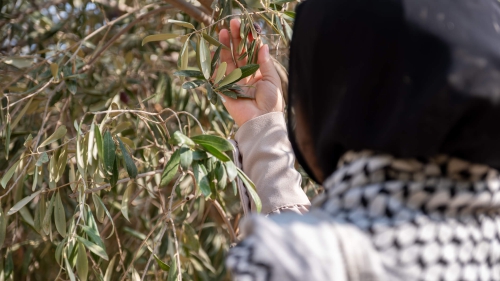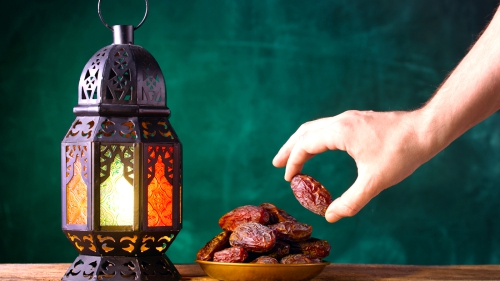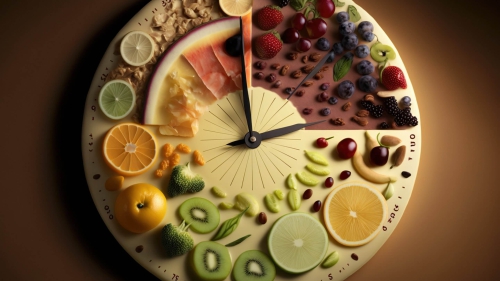Is Gluten-Free the New Normal?

Imagine removing certain breads, pastas, baked goods, cereals, crackers, gravy, and soups from your diet. Many of these foods contain a substance called gluten, a mixture of two proteins present in grains—especially wheat, barley, and rye—that is responsible for the elastic texture of dough. Some people experience adverse reactions and health risks when eating foods containing gluten. The peptides found in gluten are resistant to stomach acids, which can make it hard for some people to digest. These peptides can cause various symptoms, from mild indigestion to more serious health conditions.
When Zeeshan Shah learned that she suffered from an incurable and hereditary autoimmune disorder called Hashimoto’s disease, she embarked on her own healing journey of trying to find a cure. She felt helpless, but through her research, she learned of many others with her condition who reversed the disease simply by eating right and exercising. One of the first things she eliminated from her diet was gluten.
Three months later, Shah’s antibody count was reduced. She went on to become a certified nutrition health coach and practices from her home in Houston, Texas. For the last seven to eight years, Shah has remained consistent with a gluten-free diet and feels many may benefit from such a lifestyle.
“There is no evidence that proves that gluten needs to be in our diet, and autoimmune disease is on the rise,” states Shah. “Gluten reacts with the body and the immune system, creating chronic inflammation and triggering an autoimmune response. People react in different ways, but I was even dealing with acne and eczema before going gluten-free.”
Safiyyah Sorathia is a freelance doula from Orlando, Florida, who also suffered from eczema most of her life. She had become accustomed to using medications, steroids, and antihistamines to no avail. It was not until she noticed a patch of eczema on her four-month-old breastfed baby that she realized it might be what she was eating that was the problem.
“I never made the connection between gut health and diet before then,” Sorathia recalls. “When I saw my baby develop eczema too, it motivated me to do more research on this autoimmune condition. I started following gut-healing protocols, which included cutting out inflammatory foods and dairy and gluten and increasing in probiotic foods.”
Sorathia does not feel like she is depriving herself but must be more creative in which foods she and her family consume. She considers herself to be very particular when it comes to alternatives to gluten and prefers more paleo-based options. She states that with a gluten-free diet, she has a much wider array of things she can eat and recommends it to anyone suffering from chronic inflammation issues.
However, someone who is considering transitioning to a gluten-free lifestyle should not simply go out and purchase a bunch of gluten-free products. Consumers need to be aware of which ingredients are being used in these products, as they may not always be the healthier choice.
“If you look at a nutrient label, the first 3 ingredients are mainly what you’re getting,” shares Sarah Bingham, a certified nutrition consultant and licensed dietitian in Florida. “Cornstarch, potato starch, tapioca starch…those are what you may typically find in gluten-free products. These will raise your blood sugar levels more than regular [white] sugar!”
With over thirty-seven years of experience, Bingham claims many of her clients do better without gluten. “If you are considering trying a gluten-free diet, I recommend going one week without any grains and then on day 8 or 9, eat as many grains as you can to see how your body reacts. Look for any symptoms that may develop and really pay attention to your body.”
Bingham refers to herself as the “original Tollhouse cookie kid” and did not move away from eating gluten until she was in her fifties. “It’s a modern phenomenon that more people are becoming sensitive to gluten,” says Bingham, who is seventy-one years old and does not recall hearing of so many gastrointestinal issues until recently.
Dr. Asad Aziz is a gastroenterologist in Hoffman Estates, Illinois, and specializes in diagnosing and treating digestive disorders such as stomach pain, ulcers, reflux, constipation, and Crohn’s disease. He recommends a gluten-free diet if he suspects a patient is sensitive to gluten or especially in the case of someone who has Celiac disease, a serious autoimmune disorder where the ingestion of gluten leads to damage to the small intestine. It is estimated to affect one in one hundred people worldwide.
“Typically, with gluten-sensitive patients, they have many extra gastrointestinal manifestations such as fatigue, joint pains, rashes, or headaches in addition to complaints of diarrhea, abdominal pain and weight loss,” Dr. Aziz states. “[Generally speaking], when it comes to good gut health, I do recommend my patients have a well-balanced diet and to consider trying prebiotics and probiotics.”
For those who are not gluten-intolerant, sensitive, allergic, or have an autoimmune disorder, clinical dietitian Reem Farra from San Antonio, Texas, does not recommend a gluten-free diet. “Wheat is fortified with different minerals like iron and folic acid, which are hard to find in alternative flours and foods,” mentions Farra. “Plus, you really have to plan out your meals, which can cause unnecessary stress on an individual. We want people to enjoy what they’re eating and choose from a variety of foods.”
When Jessica Nix visits her husband’s family in Ghana, Africa, she has no choice but to follow a mainly gluten-free diet. According to Nix, there is not much processed food there, as everything is prepared slowly and fresh.
“Food is not as easily accessible as it is here in the States,” Nix says. “My health is better there, not necessarily because of less gluten, but also because we eat a lot of stew made from veggies like okra, tomatoes, and eggplants. They do add starch to thicken the stew but it’s made of cassava, plantains, millets, and corn flour. Rice is also consumed quite a bit. Wheat bread is more of a breakfast staple, and the dough needs to be pounded and kneaded for quite some time.” Nix states that it is hard for her to maintain the same eating regimen at home, though, as there are so many more food options available that are fast and easily attainable.
This ties back to what Farra noted above about the stress of planning out meals to be gluten-free. Shaheen Shedbalkar is a part-time high school social worker from Lombard, Illinois. She is not 100% gluten-free herself but tries to support her husband Khutub Khan, who is battling cancer. As a family, they do their best to eat clean, and Shedbalkar makes it a point to keep meals simple and consistent.
“I have learned to read labels and ingredients very carefully,” Shedbalkar says. “There are so many gluten-free options out there for even snacks for kids, but that doesn’t mean they’re healthy. My [overall] goal is to help them make good decisions and choices when it comes to eating, and that must start at home.”
Living gluten-free may not be for everyone. It is important to listen to one’s body and understand what it needs to function properly. Being gluten-free is not a fad or a quick fix to weight loss. If an individual notices symptoms or changes in their health from eating gluten-rich foods, they should see a specialist or a practitioner to determine what is the best approach.
Tayyaba Syed is a multiple award-winning children’s book author, journalist, keynote speaker, and performer. She readily conducts literary and faith-based presentations for a variety of schools, communities, and organizations, both online and in-person. She is an elected member of her local public school Board of Education in Illinois, where she lives with her husband and three children. Learn more at www.tayyabasyed.com.
Reprinted from the Fall 2022 issue of Halal Consumer Magazine with permission from IFANCA and Halal Consumer Magazine.
















